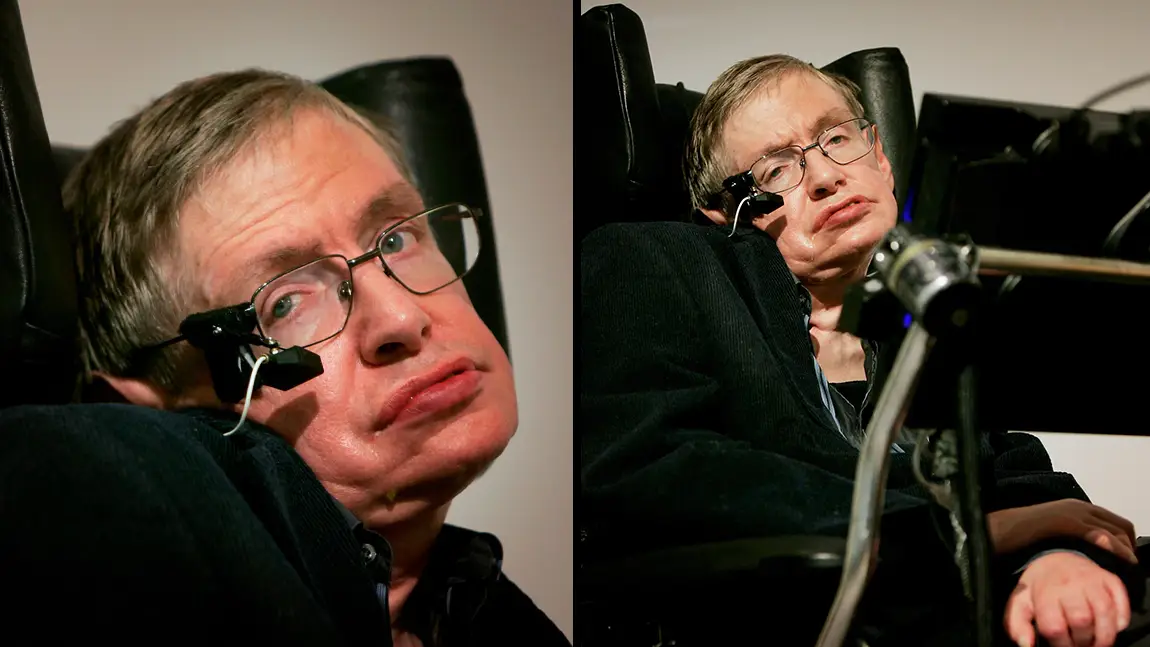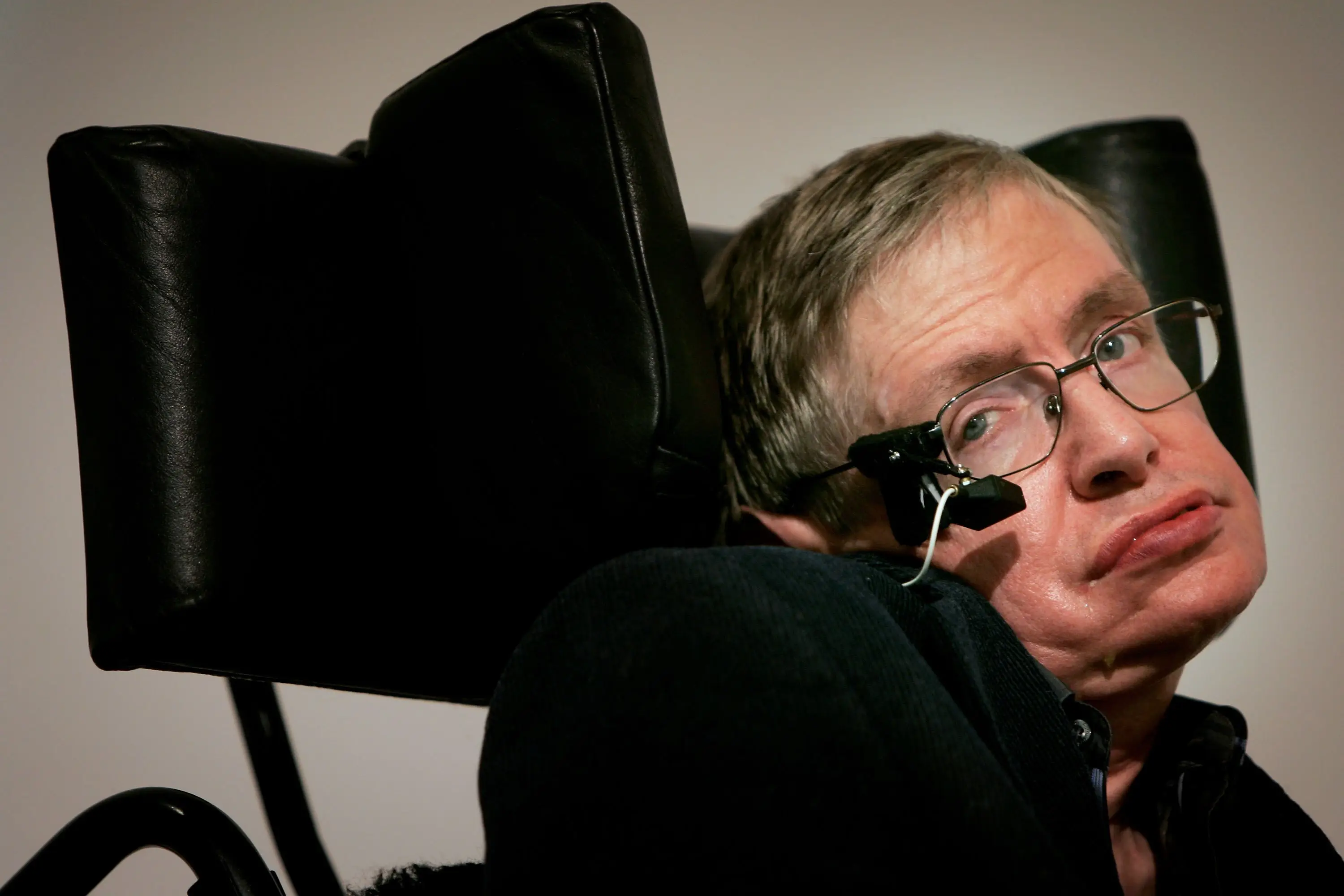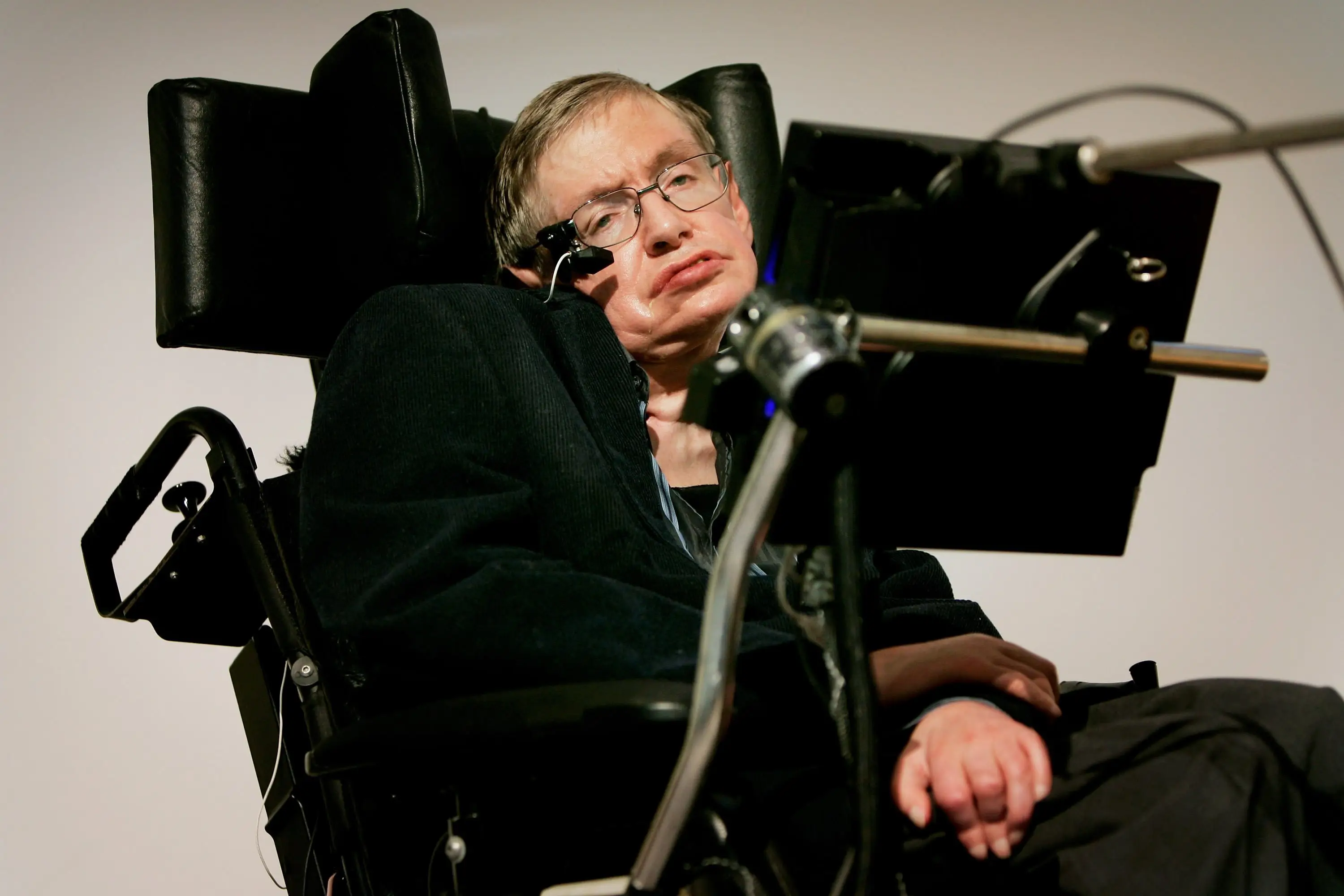
We all know Professor Stephen Hawking as one of the brightest minds in modern history - but what many don't know about him is his 'wicked sense of humour'.
Back in 2018, we lost one of the world's finest scientific minds best known for his groundbreaking studies on black holes and author of one of the best-selling books, A Brief History of Time: From the Big Bang to Black Holes (1988).
However, while it's nothing new that Hawking was clearly a genius brainiac - fans are less clued up on the fact he once faked his own death in a BBC interview.
Advert

Back in 2004, BBC science correspondent Pallab Ghosh went to interview Hawking at his office in Cambridge, and he said the esteemed physicist immediately put him at ease.
However, the calm didn't last long, with a camera operator making a blunder which Hawking capitalised upon brilliantly, tricking the poor crew into thinking they'd accidentally killed him.
Ghosh recalled the professor's 'huge joke' on The One Show, and also wrote about his 'wicked sense of humour'.
"I felt a mixture of awe and excitement as I waited for the man who for years had been my idol," he recalled. "He seemed to smile at me as he entered the room which immediately put me at my ease.
"The camera operator I was with wanted to make a last minute adjustment to his lighting and so he asked Prof Hawking's staff if he could pull out one of the plugs in the office so that he could use the socket for his equipment.
"Without waiting for a response he pulled the plug and the room was filled with a deafening siren.
"Prof Hawking then slouched forward and I feared that my colleague had inadvertently unplugged a vital piece of life-support equipment.
"Fortunately, it was the alarm to the uninterruptable power supply to his office computer and he was slouched forward with mirth at our incompetence."

Surely they've got to release the footage of the BBC team absolutely s****ing themselves, right?
Hawking was born on 8 January 1942 in Oxford, the eldest of four children, and went on to become one of the world’s most acclaimed cosmologists.
He was diagnosed with amyotrophic lateral sclerosis (ALS), a rare form of motor neurone disease, in his 20s, and eventually had to use a wheelchair and was dependent on a computerised voice system for communication.
But despite this, he continued to travel the world giving science lectures and writing scientific papers about the basic laws which govern the universe.
With Roger Penrose, he showed that Einstein's General Theory of Relativity implies space and time would have a beginning in the Big Bang and an end in black holes.
These results indicated that it was necessary to unify general relativity with quantum mechanics, the other great scientific development of the first half of the 20th century.
He also discovered that black holes should not be completely black, but rather should emit radiation and eventually evaporate and disappear – this radiation is now called Hawking Radiation.
His seminal text, A Brief History of Time: From the Big Bang to Black Holes, has since gone on to sell more than 25 million copies.
Topics: BBC, Celebrity, Stephen Hawking, Science